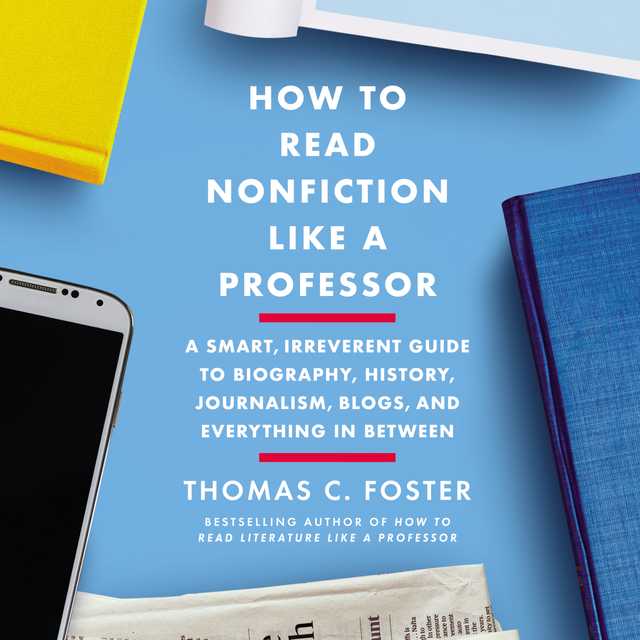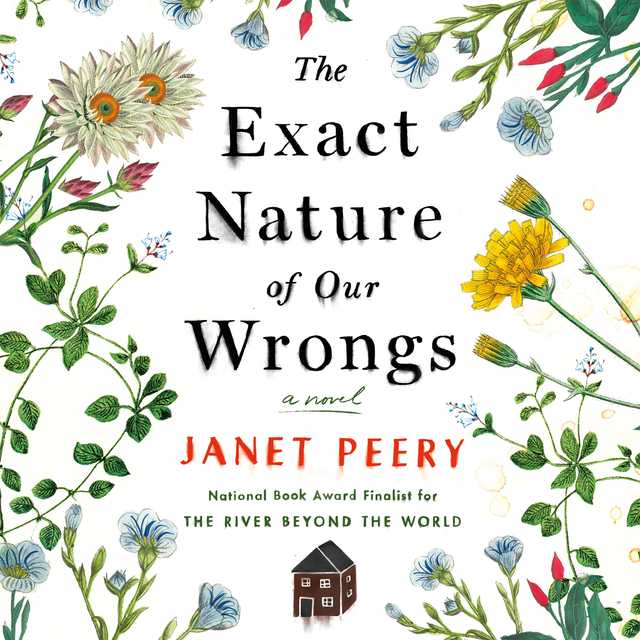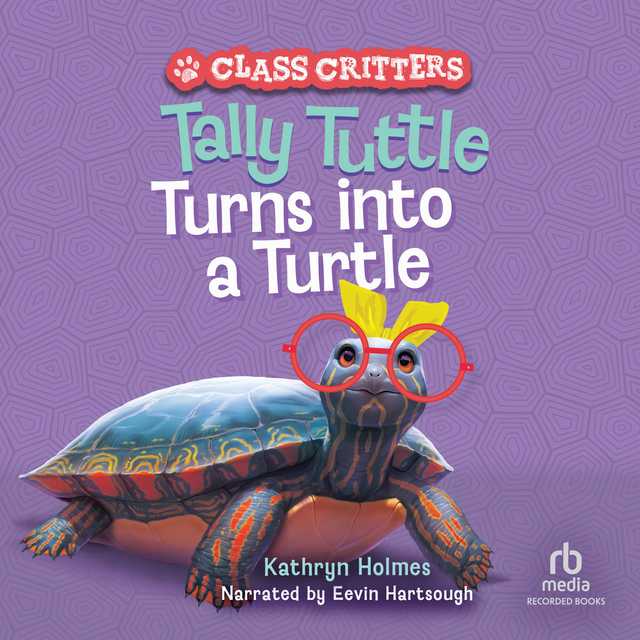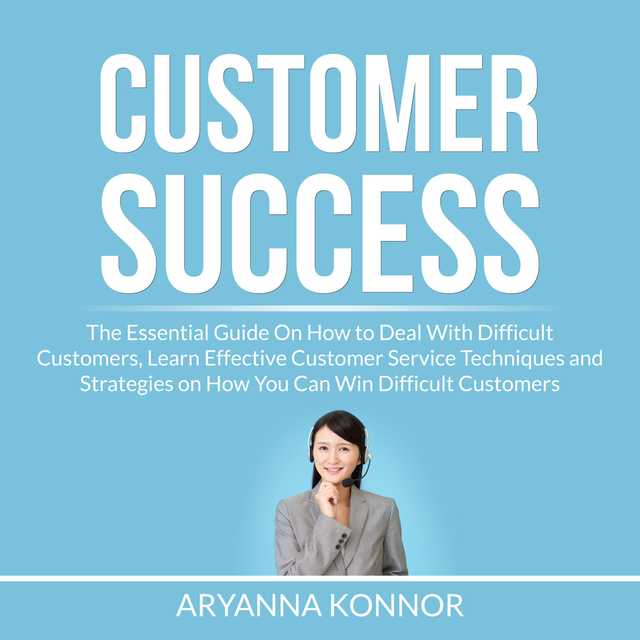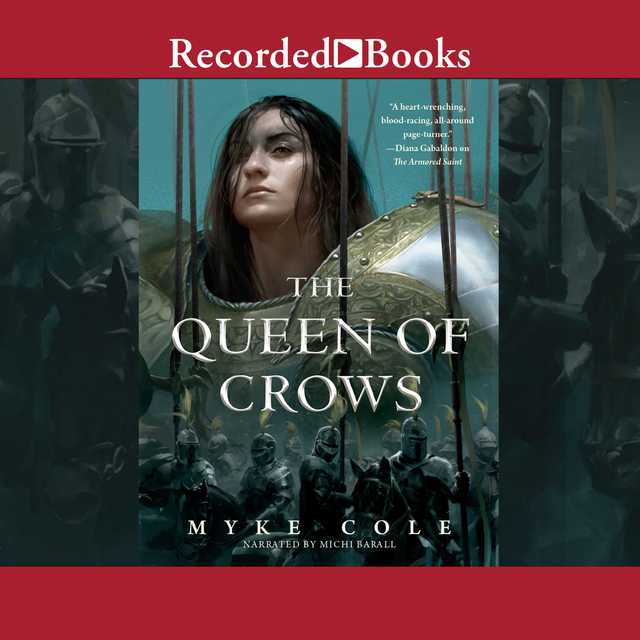How to Read Nonfiction Like a Professor Audiobook Summary
The New York Times bestselling author of How to Read Literature Like a Professor uses the same skills to teach how to access accurate information in a rapidly changing 24/7 news cycle and become better readers, thinkers, and consumers of media.
We live in an information age, but it is increasingly difficult to know which information to trust. Fake news is rampant in mass media, stoked by foreign powers wishing to disrupt a democratic society. We need to be more perceptive, more critical, and more judicious readers. The future of our republic may depend on it.
How to Read Nonfiction Like a Professor is more careful, more attentive, more aware reading. On bookstore shelves, one book looks as authoritative as the next. Online, posts and memes don’t announce their relative veracity. It is up to readers to establish how accurate, how thorough, how fair material may be.
After laying out general principles of reading nonfiction, How to Read Nonfiction Like a Professor offers advice for specific reading strategies in various genres from histories and biographies to science and technology to social media. Throughout, the emphasis will be on understanding writers’ biases, interrogating claims, analyzing arguments, remaining wary of broad assertions and easy answers, and thinking critically about the written and spoken materials readers encounter. We can become better citizens through better reading, and the time for that is now.
Supplemental enhancement PDF accompanies the audiobook.
Other Top Audiobooks
How to Read Nonfiction Like a Professor Audiobook Narrator
David de Vries is the narrator of How to Read Nonfiction Like a Professor audiobook that was written by Thomas C. Foster
Thomas C. Foster, author of How to Read Literature Like a Professor and Reading the Silver Screen, is professor emeritus of English at the University of Michigan, Flint, where he taught classes in contemporary fiction, drama, and poetry, as well as creative writing and freelance writing. He is also the author of several books on 20th-century British and Irish literature and poetry.
About the Author(s) of How to Read Nonfiction Like a Professor
Thomas C. Foster is the author of How to Read Nonfiction Like a Professor
More From the Same
- Publisher : HarperAudio
- Abraham
- American Gods [TV Tie-In]
- Dead Ringer
- House of Sand and Fog
- Prey
How to Read Nonfiction Like a Professor Full Details
| Narrator | David de Vries |
| Length | 9 hours 36 minutes |
| Author | Thomas C. Foster |
| Category | |
| Publisher | HarperAudio |
| Release date | May 26, 2020 |
| ISBN | 9780063009905 |
Subjects
The publisher of the How to Read Nonfiction Like a Professor is HarperAudio. includes the following subjects: The BISAC Subject Code is Language Arts & Disciplines, Rhetoric
Additional info
The publisher of the How to Read Nonfiction Like a Professor is HarperAudio. The imprint is HarperAudio. It is supplied by HarperAudio. The ISBN-13 is 9780063009905.
Global Availability
This book is only available in the United States.
Goodreads Reviews
chantel
August 11, 2020
Well laid out as to why you should be critical of all aspects of what you're reading in these Trumpian times where lies, manipulated data and misleading information is being passed off as truth and nonfiction. Thomas C. Foster explored the historical contexts of nonfiction writing and reporting, keeping it interesting and well paced. He gets to also explaining why it's important to not ignore or throw away certain parts of texts especially when it comes to nonfiction. It's important while reading nonfiction, not to cut off the parts of texts we'd equate to the fat on the chicharron; parts like the prologue (my favourite part of any text), author's notes, footnotes, source texts, how data is collected, etc. All that shit is important when it comes to getting to the bottom of things; getting at the truth in nonfiction work. I really like Thomas C. Foster's writing style. Although sometimes he does come across a little self-dick-riding celebrity-professor and sometimes he comes across a little: "open your eyes children! can you believe this shit!", it still makes for an enjoyable read. And, yes! Yes we can believe this shit Mr. Foster! We're living alongside the madness with you. Other than that - it's an excellent read. I enjoyed the parts surrounding the mystique of Joan Didion and how she assisted in or directed the creation of a distinct nonfiction writing style. She's always been someone I've been curious about because I haven't read any of her work, even though I've heard her name and seen her books everywhere. My favourite take away is at 64% where Thomas C. Foster states: "Fictional truth is entirely an internal matter. But a writer of nonfiction is not a novelist. Truth is not his to decide. Rather than merely assert, he must adduce evidence to convince us of the veracity of his claims. The evidence can be physical- anything from an email to a literal smoking gun- or reliable testimony." That shit is on point.
Patti
June 05, 2020
Very informative I feel like I am a better reader after reading this
Susan
April 23, 2020
If you are a book lover this is a great read. The book covers many genres of books.
Mary
June 09, 2020
Alot of good information.
Alexandra
June 04, 2020
I’m a big fan of Foster’s books, and this one had lots of practical information for students. Some sections, however, were extended summaries of current events, which may limit this book’s longevity.
Peter
July 21, 2021
The idea of being a professor has always appealed in many ways, although I've never got close to it in retrospect. Non-fiction is my interest in reading and I like to think of myself as someone who thinks critically, by which I mean critiquing not what passes for discussion in various parts. So I thought it was a good idea to check myself out by reading what Thomas C. Foster has to say.Foster's book covers a broad range of media, from books to news and what he calls "emerging media." His method is to explain the fundamentals, what something is and isn't, and a conversational direct style that contains a bit of wry humor and a couple of challenging statements every so often. It's as if you're sitting around a fire somewhere, relaxing and conversing.His examples are predominantly American, which is fairly normal for this kind of thing, and he references a wide range of writing, from musicians (Pete Townshend; Neil Young) to politicians (Donald Trump naturally gets and extended run) and various writers e.g. Joan Didion, Annie Dillard, Malcolm Gladwell, Christopher Hitchens among others.As intended, Foster makes you think, particularly if you've read the book he's talking about and there are insights gained from comparing what you remember and what he's saying. I liked his explication of Hunter S. Thompson's Fear and Loathing in Las Vegas, amongst many others, and went out and bought Didion's The White Album, only partly read at this point but an excellent read.So interesting, informative and sometimes quite humorous. An easy read.
Geri
November 02, 2020
Learning more about how to read "like a professor" makes me wish I would have been an English major instead of elementary educator. I really enjoy "deep reading" and now have more background to help me read nonfiction, a genre I appreciate and read a lot of. I am now ready to tackle Henry David Thoreau: A Life, by Laura Dassow Walls (which was highly recommended to me). At almost 400 pages, I am sure this will be a whole winter of reading for me.
Bobbie
June 09, 2020
I'm not sure what I was expecting in this book. In spite of the title, I thought it could be a very boring book, but I was wrong. I like how it began with the analogy of going to get your medications in the pharmacy and all the medicines were what they should be but two of the bottles in the store contained poison. Would you still take the risk and get your medicines there? Foster says that is how it is with a lot of the non-fiction articles you can find. Some of them may be credible and fine resources, and others disinformation and totally unreliable. I really like his approach to this topic. The only part I did not like was that some of his examples seemed like nothing more than summary, and I would have wanted more than that. Still, I think it is a good resource for teaching students in this age of accurate and credible information versus disinformation and deliberate false news. As a writing teacher, I recommend it and will use it with my students.
Brendan
April 16, 2021
"Knowledge is mechanical."This quote comes in the conclusion, but it is the driving idea behind Foster's text. The book itself is kind of an instruction guide to critical thinking in the consumption of nonfiction texts. None of the ideas are ground-breaking (a lot of the content that he went over was review for me), but it is a good overview of important ideas that one should keep in mind when analyzing nonfiction texts. Some of these ideas include the line between subjectivity and objectivity, bias, sources, authorial intent, types of attribution, etc. Forster explores how these ideas interact with nonfiction texts, and it is very much a synthesis of these ideas with the nonfiction texts that Foster knows and enjoys.One thing I really appreciate about Foster's writing style is how upfront he is with his biases. In many of the texts that he examines, you can feel his admiration or disdain, and I would guess that this is intentional. He's somewhere on the left, and this informs his writing, although he isn't afraid of casting a critical eye on both sides. Also, his writing style is very informal - it almost feels like you are having a conversation with, well, a Professor. This style definitely isn't for everyone, but if you buy into it, it is well worth your time.
Angie
September 20, 2020
Not going to lie, I have "How to Read Fiction Like a Professor" but have never read it. Pretty sure it's been on my TBR for 10+ years at this point (eek!). It's one of those books I've been meaning to get to. But when this book popped up on Instagram I bought it immediately. Since I started grad school this fall I thought it would be a good book to help me re-acclimate to academia, and it did but it also helped me re-evaluate how I read nonfiction in my every day life as well. Foster provides a really great breakdown using multiple writing samples for how to think critically of the information you are reading. He also breaks down how different nonfiction pieces are written and classified, and how that shapes the information we are reading. If you find yourself consuming a lot of news, and you're struggling to make heads or tales if what you're reading is real or "fake" this book is worth reading. I found it to be easy to digest, and as shown in my reading timeline, it's very easy to pick up and put down as needed.
Rith
March 31, 2022
There are a few good tips that I learned from this book about how to be a better reader of nonfiction. One of the tips that I want to highlight is Thomas' explanation on the differences between the claim, ground and warrant. Basically, a claim is author's argument or thesis statement, a ground is the backup and a warrant is the logical link between the ground to the claim. Thomas stresses on the importance to continually asking ourselves what the argument the author of the book that are reading is trying to make, what is the ground and is it a logical reasoning. I personally learned a whole lot of new ideas about nonfiction reading through this book. I don't mind the fact that Thomas rants on the political right wing agenda and his disdain on the Trump administration. I would totally recommend this book to anybody who is new to nonfiction reading and is looking for ways to improve their reading skills.
Ellen
June 12, 2022
And here I thought I was a knowledgeable, astute nonfiction reader! Professor Foster lays out everything readers need to know about how to spot skewed arguments, biased reporting, faulty logic and other dangers lurking between the pages. His questions for techniques like interrogating the author, interrogating the text, interrogating the sources are not material I've seen anywhere else. I wish I'd had this when I was teaching freshman composition classes -- I would have made it a required textbook! My guess is that Dr. Foster is a popular professor on his campus, assuming he's as witty and concise in the classroom as he is in this book.Absolutely read this. Even if you're pretty savvy about how to identify reputable sources and authors, you'll gain the language and information you can use to help others do the same.
Vicki
February 09, 2023
This book was not exactly what I was expecting. I anticipated it would only deal with books, but there were extensive discussions about journalism, magazines, and online information. If you are pro-Trump and the Trump administration you may not agree with Dr. Foster's unapologetic discussion regarding the various books that came out during Trump's time in office and the distribution of misinformation leading up to the 2016 election. Quotes from the text:Ask questions, consider sources, read carefully, and generally use your brain.The real question is not how much work is needed, but how much is democracy worth to you.
Cat
September 14, 2021
Foster's writing style makes studying literary analysis fun and somewhat silly. This latest installment in his "How to Read...Like a Professor" series is strikingly relevant right now. Its practical advice about identifying biases, vetting claims, and spotting false information is great not just for writers and analysts, but for anyone. We're presented with tons of information at all times thanks to the internet; Foster tells you how to trust what you see (and what you shouldn't).My only issue with this particular installment is that it's fairly dry in the middle. This is to be expected, though, as it primarily concerns political writing.
Patrick
September 28, 2020
Actually pretty good read for non-fictions buffs like me. The only real beef I have with this book is the information density presented. It makes it at times hard to follow, and well, you wish you would be a professor. I read this book, unusual for me, taking breaks. After a couple of chapters I had to put it a way, put a 'real' book intermezzo in between, before continuing. Though some of the intermezzos where books the author mentioned as glaring great examples.
AngelaBIsReading
July 18, 2020
I was pleasantly surprised by the humorous tone and moments of levity throughout this work. I read it, hoping to find some great lessons and information for my students, but walked away with new strategies for myself to use to be a more reflective reader. There are definitely parts of this book I will share with students to help them navigate the wide world of nonfiction, and parts that I will remember in my own reading as well.
Most Popular Audiobooks
Frequently asked questions
Listening to audiobooks not only easy, it is also very convenient. You can listen to audiobooks on almost every device. From your laptop to your smart phone or even a smart speaker like Apple HomePod or even Alexa. Here’s how you can get started listening to audiobooks.
- 1. Download your favorite audiobook app such as Speechify.
- 2. Sign up for an account.
- 3. Browse the library for the best audiobooks and select the first one for free
- 4. Download the audiobook file to your device
- 5. Open the Speechify audiobook app and select the audiobook you want to listen to.
- 6. Adjust the playback speed and other settings to your preference.
- 7. Press play and enjoy!
While you can listen to the bestsellers on almost any device, and preferences may vary, generally smart phones are offer the most convenience factor. You could be working out, grocery shopping, or even watching your dog in the dog park on a Saturday morning.
However, most audiobook apps work across multiple devices so you can pick up that riveting new Stephen King book you started at the dog park, back on your laptop when you get back home.
Speechify is one of the best apps for audiobooks. The pricing structure is the most competitive in the market and the app is easy to use. It features the best sellers and award winning authors. Listen to your favorite books or discover new ones and listen to real voice actors read to you. Getting started is easy, the first book is free.
Research showcasing the brain health benefits of reading on a regular basis is wide-ranging and undeniable. However, research comparing the benefits of reading vs listening is much more sparse. According to professor of psychology and author Dr. Kristen Willeumier, though, there is good reason to believe that the reading experience provided by audiobooks offers many of the same brain benefits as reading a physical book.
Audiobooks are recordings of books that are read aloud by a professional voice actor. The recordings are typically available for purchase and download in digital formats such as MP3, WMA, or AAC. They can also be streamed from online services like Speechify, Audible, AppleBooks, or Spotify.
You simply download the app onto your smart phone, create your account, and in Speechify, you can choose your first book, from our vast library of best-sellers and classics, to read for free.
Audiobooks, like real books can add up over time. Here’s where you can listen to audiobooks for free. Speechify let’s you read your first best seller for free. Apart from that, we have a vast selection of free audiobooks that you can enjoy. Get the same rich experience no matter if the book was free or not.
It depends. Yes, there are free audiobooks and paid audiobooks. Speechify offers a blend of both!
It varies. The easiest way depends on a few things. The app and service you use, which device, and platform. Speechify is the easiest way to listen to audiobooks. Downloading the app is quick. It is not a large app and does not eat up space on your iPhone or Android device.
Listening to audiobooks on your smart phone, with Speechify, is the easiest way to listen to audiobooks.

